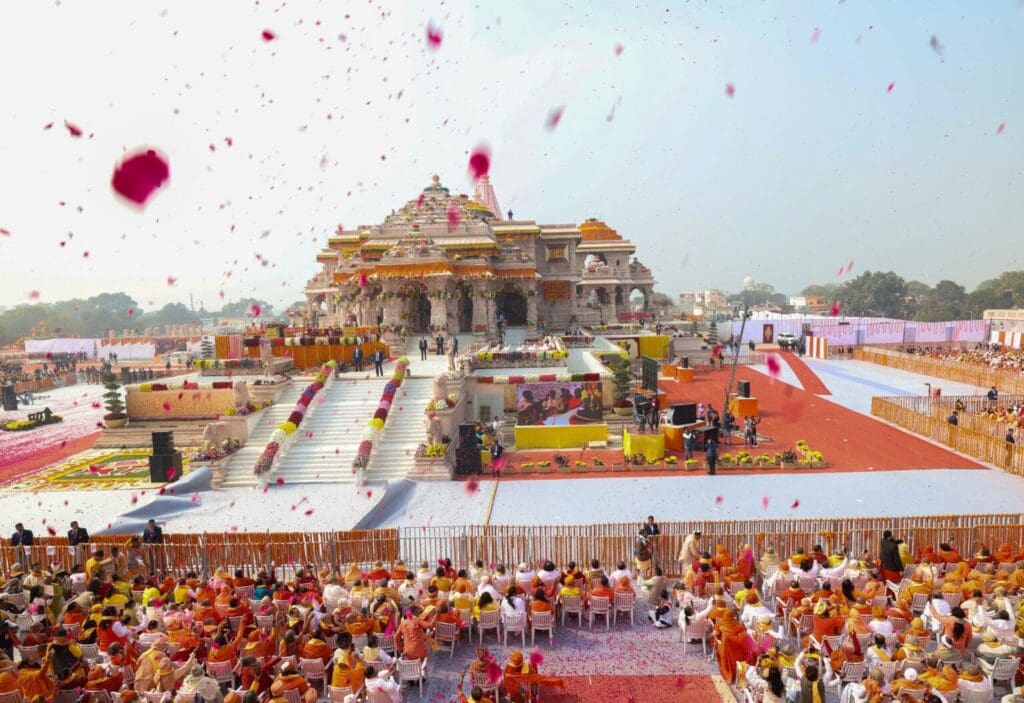
The construction of the Ram Mandir at the site of demolished Babri Masjid and its consecration in January this year have helped Bharatiya Janata Party silently consolidate Hindu identity, says CSDS-Lokniti 2024 pre-poll survey.
“We conducted this pre-poll survey more than two months after the consecration of the temple. Yet, the consecration of the temple was etched in the minds of the respondents as a major event. While the consecration was widely welcomed, doubts were expressed over its effect on the non-Hindu minorities and also over the nearly full-fledged state sponsorship of the event at Ayodhya. As the election campaign unfolds, the temple has already become a subterranean issue that voters will carry to the polling station. And undeniably, the issue is likely to work in the BJP’s favour,” read The Hindu report written by Suhas Palshikar, noted scholar and co-director of Lokniti Programme on Comparative Democracy, CSDS.
In the survey, when asked to name the ‘most liked action’ of Narendra Modi government, over 22% of the respondents mentioned the construction of the Ram Mandir. Nearly half the respondents said that the construction of the temple will help in consolidating Hindu identity.
The rich and the Hindu upper castes, followed by the middle classes and Hindu Other Backward Classes were more likely to believe that the Ram Mandir will consolidate Hindu identity, showed the survey results.
The temple issue also has the potential to lead to a religious divide, respondents argued. Overall, over one in every four respondents agreed with the view that this will be the case. This view was more prominent among non-Hindus than among Hindus. However, even among Hindus, more than two among every five believed that the temple issue would increase differences among the two communities.
On 22 January, Prime Minister Narendra Modi inaugurated a grand temple to the Hindu God Ram in Ayodhya in Uttar Pradesh, culminating a four-decade campaign to build the temple by Hindu far-right groups.
The temple, popularly known as Ram Mandir, is being constructed on the land where Babri Masjid, a 16th-century mosque stood until 1992, when Hindutva mobs demolished it, triggering a nationwide anti-Muslim riots that killed more than 2,000 people.
Hindus campaigned that the Babri Masjid was built on the site of a temple during the first Mughal ruler Babur, on land that was the birthplace of their chief deity Ram. Muslims offered prayers until 1949 when idols were placed inside the mosque by Hindu priests.
Supreme Court ruling in 2019 gave ownership of the land to a Hindu trust.



